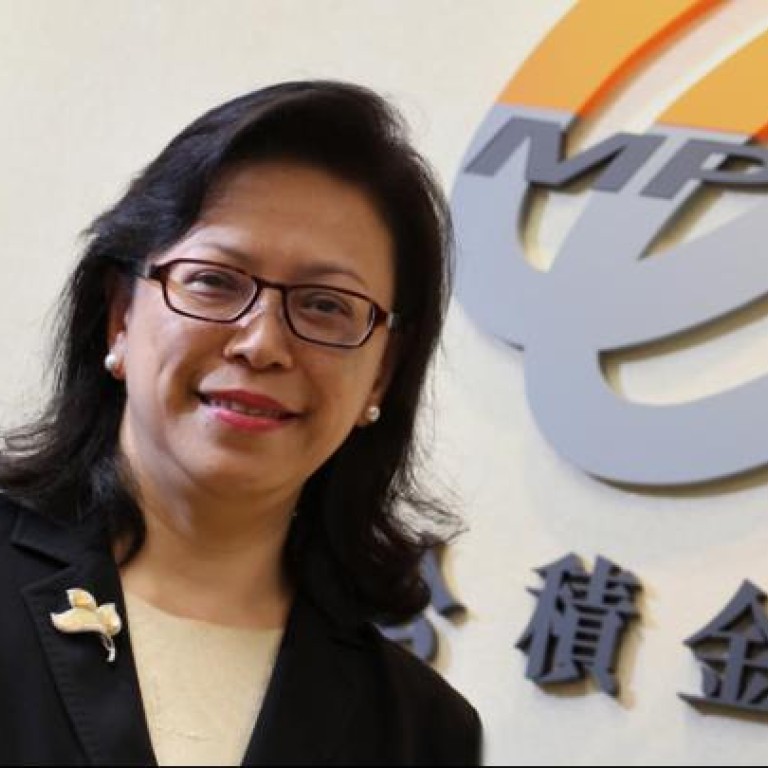
Fund provident in name but certainly not in practice
MPF chief shows her ignorance and disdain for workers with her recipe for reform of scheme
What gall! I find it astounding that a bureaucrat put in charge of our forced retirement savings scheme should reveal herself as quite so ignorant of the dynamics of the scheme.
Get it straight, Ms Chan. What happened when the Mandatory Provident Fund was conceived is that the government allowed the big banks and fund managers to dictate its structure and they, not surprisingly, structured it for their own benefit.
They did it by giving the choice of the fund manager for each employee to his or her employer. This creates administrative nightmares for anyone changing jobs and employers make their choice on the basis of other financial arrangements they can reach with the fund managers they appoint.
The result has indeed been high fees. With all the hidden charges, I think they are much higher even than the Consumer Council recently reported.
But this is not because free market competition failed to bring fees down. There never was any free market competition in the field anyway. It was deliberately eliminated from MPF choices right from the start and the responsibility for this lies squarely with the MPF Schemes Authority.
It adopted a structure that worked against competition and was custom devised to rob the supposed beneficiaries through fees and charges imposed without any option on their part to look for better deals elsewhere.
I repeat. It was the MPF authority that was responsible for this failure. Blaming banks and fund managers for it has as little point as blaming wolves for eating sheep. That's what they do. If it happens, blame the shepherd. It's his job to stop it. Ours walked off the job.
And it's not as if all this is news to the MPF authority. The basic facts have been pointed out to it many times, along with the arithmetic that shows how much this fund manager theft bites into retirement savings.
Nor, after 12 years of this, does it really make much difference to give employees the choice of manager for their half share of the contributions while still leaving employers to direct their contributions where they will. This makes the administrative nightmare much worse for the employees and so many obstructions have been placed in their way that they are discouraged from making their own choice. And it is then an outright insult to them when the MPF authority chief again refuses to accept responsibility for how their savings have been misused but blames it on free market competition that never existed and that she would probably never recognise if it did.
Her proposed remedy of a cap on fees only reveals how total her ignorance is. There will be a hundred ways around it. It is impossible to write rules tight enough. What is a fee as opposed to a charge given some other name? How many fees or charges will be tolerated? Will brokers' commissions for any MPF business also be fixed? How can all of this be satisfactorily policed except at a cost that will further drain retirement savings?
There is only way out of the conundrum, move immediately to full employee choice of fund manager. This would finally introduce free market competition pressure that has never yet existed in this rip-off.
No, I take it back. The best thing to do would be to scrap the MPF entirely as an outright failure and allow people the complete choice of their retirement savings.
Unlike bureaucrats, I have faith in people. I think almost all of us use our disposable savings wisely, mostly in building our own businesses and generating a much higher return from them than the MPF ever could.
And it would keep people like Ms Chan away from the money.

